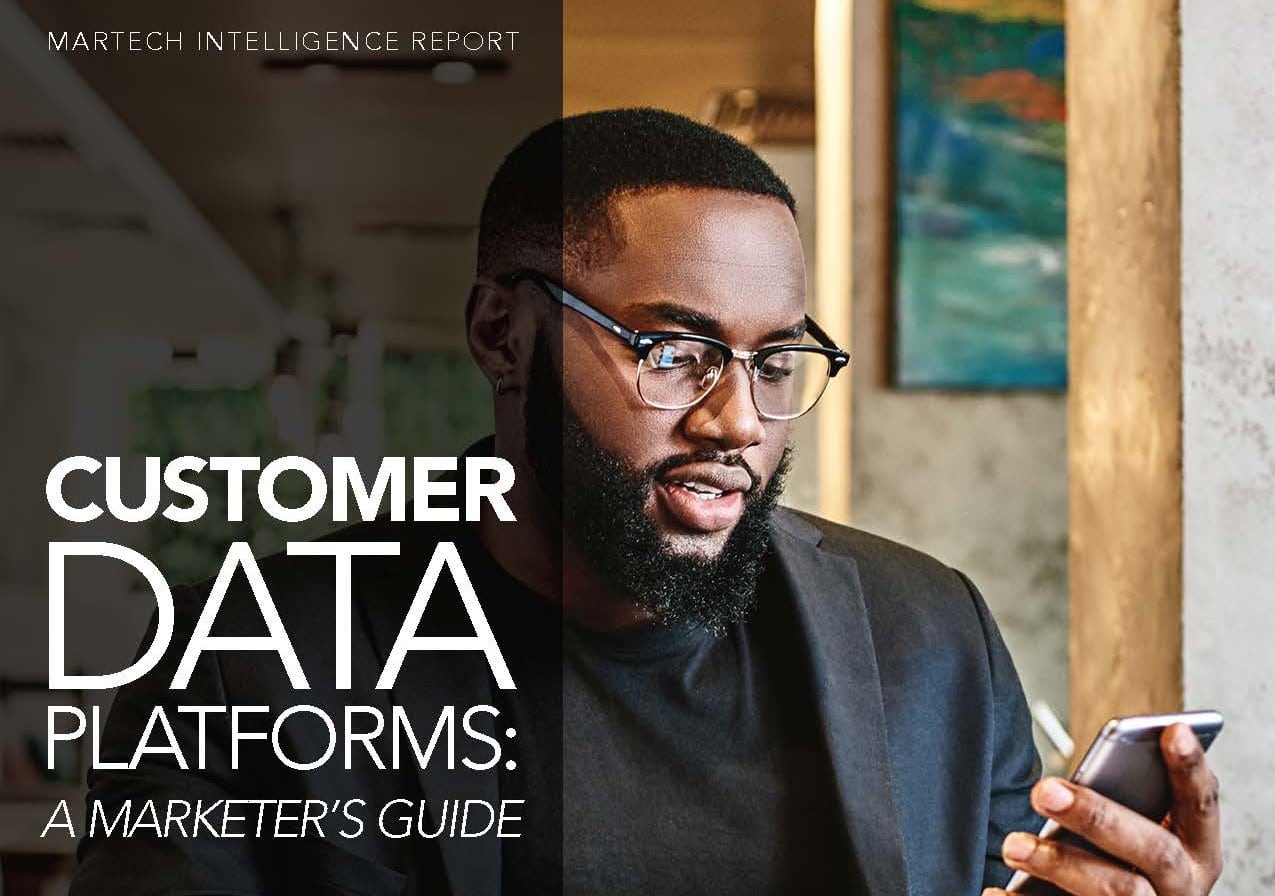When it comes time to purchase or upgrade a customer data platform (CDP) for your organization, the demo can be the best way to really understand what a particular vendor offers.
Which CDP vendors should I consider?
First, you have to find the right vendors. Here’s how to do that:
- Inventory all your databases and martech applications and be sure all stakeholders weigh in on which data and system integrations are priorities. CDPs offer numerous out-of-the-box connectors and APIs to make the integration process faster and more seamless. Prioritizing the applications you want to integrate first, makes it easy to ID vendors with programs that already have native connections to them.
- Speak to your marketing peers to find out who is using which CDP vendor and why. (Many of the vendors also provide whitepapers and interactive tools that can help.)
- Once you know which vendors meet your criteria, send them the list of capabilities you need and set a timeframe for them to reply.
- Decide whether or not you need to engage in a formal RFI/RFP process. This is an individual preference. However, be sure to give the same list of integrations to each vendor to facilitate comparison.
The next step is setting up demos.
Why should I schedule a CDP demo?
Demos are an opportunity to assess both the systems and the companies behind them. The second part is every bit as important as the first. You want to see who responds well under pressure, who has a fixed way of doing things versus who can adapt to how you need it done.
Schedule all the demos relatively close to each other to help make relevant comparisons. Also, make sure all potential users and stakeholders are on the demo call. Ask them all to keep in mind these questions:
- How easy is the platform to use?
- Does the vendor seem to understand our business and our marketing needs?
- Are they showing us our “must-have” features?
Explore platform capabilities from vendors like Blueconic, Tealium, Treasure Data and more in the full MarTech Intelligence Report on customer data platforms.
Questions to ask the CDP vendors
To help you navigate the demo, here are a few questions to ask each vendor:
- How does the platform provide identity resolution? How does it stitch data points together?
- How does it handle both structured and unstructured data?
- How does it ingest and manage offline data?
- How does it monitor integration success and/or failures, and report on data variances or anomalies?
- How does it handle connectors and integrations with outside martech systems?
- Are your “must have” integrations rock solid?
- What is the CDP’s approach to integrating with the specific martech systems that your company uses? Just because a connector exists doesn’t mean it will necessarily work for your organization and how you use that third-party platform.
- How does the platform allow users to create customer segments based on behaviors and preferences?
- How does it employ machine learning for data analytics, such as predicting customer trends and patterns?
- How can we send personalized and targeted messaging from the CDP?
- How can we use the CDP to coordinate and track multi-step marketing campaigns?
- What data security regulations does the platform comply with?
- What data security certifications does the platform have?
- Can we pay the software license month-to-month? Or is an annual contract required? Is there a short-term contract or an “out” clause if things don’t work out?
- Will there be a price increase when I renew next year — if so, how much? Will the vendor commit to capped increases over a period of years?
- What are the additional fees? (i.e., set-up costs, add-on features, API, quotas)?
- How long is the onboarding process typically? Will we have a dedicated resource? Who will be the day-to-day contact?
- What is the level of support included in the price? What support is additional?
- Who pays if your system/team makes an error?
- Will our support team work with us to test new features and assess the results?
Our new report, “Customer Data Platforms: A Marketer’s Guide” is now available for free download.
Get MarTech! Daily. Free. In your inbox.
Customer data platforms: A snapshot
What they are. Customer data platforms, or CDPs, have become more prevalent than ever. These help marketers identify key data points from customers across a variety of platforms, which can help craft cohesive experiences. They are especially hot right now as marketers face increasing pressure to provide a unified experience to customers across many channels.
Understanding the need. Cisco’s Annual Internet Report found that internet-connected devices are growing at a 10% compound annual growth rate (CAGR) from 2018 to 2023. COVID-19 has only sped up this marketing transformation. Technologies are evolving at a faster rate to connect with customers in an ever-changing world.
Each of these interactions has something important in common: they’re data-rich. Customers are telling brands a little bit about themselves at every touchpoint, which is invaluable data. What’s more, consumers expect companies to use this information to meet their needs.
Why we care. Meeting customer expectations, breaking up these segments, and bringing them together can be demanding for marketers. That’s where CDPs come in. By extracting data from all customer touchpoints — web analytics, CRMs, call analytics, email marketing platforms, and more — brands can overcome the challenges posed by multiple data platforms and use the information to improve customer experiences.





![How AEO Will Impact Your Business's Google Visibility in 2026 Why Your Small Business’s Google Visibility in 2026 Depends on AEO [Webinar]](https://articles.entireweb.com/wp-content/uploads/2026/01/How-AEO-Will-Impact-Your-Businesss-Google-Visibility-in-2026-400x240.png)
![How AEO Will Impact Your Business's Google Visibility in 2026 Why Your Small Business’s Google Visibility in 2026 Depends on AEO [Webinar]](https://articles.entireweb.com/wp-content/uploads/2026/01/How-AEO-Will-Impact-Your-Businesss-Google-Visibility-in-2026-80x80.png)














You must be logged in to post a comment Login